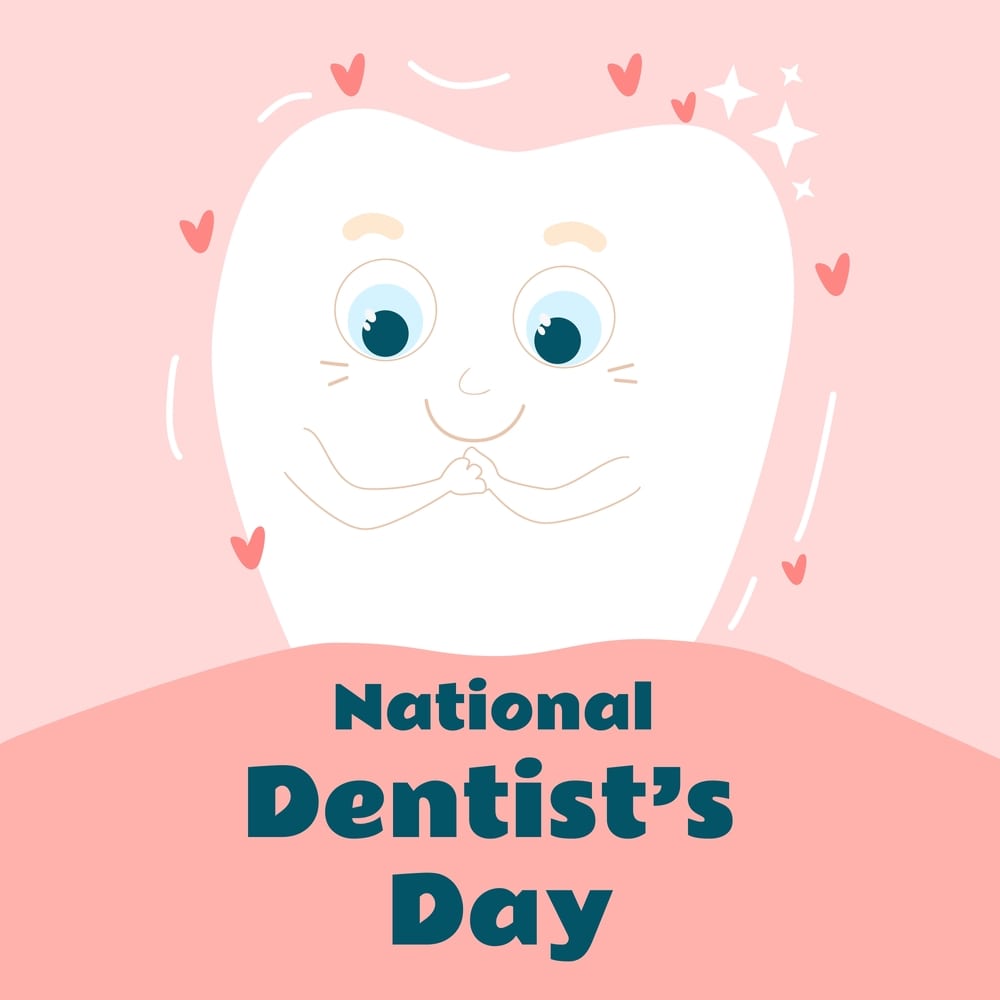National Dentist’s Day is March 6th, a day to show your appreciation for your dentist who helps keep your mouth healthy. Whether it’s your family dentist, neuromuscular dentist, or your child’s pediatric dentist, let’s take a moment to thank a dentist for all that they do. And what better way to show your appreciation than by maintaining good oral hygiene!
Here’s what you can do year-round and in between dental appointments for optimum oral health.
Before we dive in, our team would like to thank Dr. Alexandra S. George DDS for her persistence in helping her clients achieve the smile they’ve always wanted and to live a life free of pain and discomfort from TMJ/D. Your dedication is inspiring!
How to maintain good oral health
1. Brush twice and floss once daily
You’ve likely heard this time and again, but we can’t stress it enough – brushing your teeth twice a day and flossing daily is one of the best ways to set yourself up for success when it comes to your oral health.
When brushing, set a timer for 2 minutes which is the ideal length of time to make sure that your teeth are being cleaned as they should. Use fluoride toothpaste to help prevent cavities and avoid quick, rigorous brushing. The best time to floss is right after a meal or at night to remove food particles that have accumulated throughout the day.
2. Limit sugary food
We understand that this is a hard one for many people – especially those with a ‘sweet tooth’. While you don’t need to give up your favourite desserts, candy, chocolate, and sugary drinks completely, we do recommend that you limit the amount of sugar you consume.
Contrary to popular belief, it’s not the sugar that causes cavities but rather how sugar interacts with the plaque bacteria to produce acid. This acid that remains on our teeth begins to slowly break down the protective enamel which creates cavities. This highlights the importance of limiting how much sugar we consume and brushing our teeth consistently to remove harmful buildup.
3. Keep up with routine dental visits
Last but certainly not least, be sure to keep up with routine dental visits which typically include a professional clean, fluoride treatment, and oral exam. Routine dental visits help your dentist identify issues early before they become a bigger problem, preventing costly and extensive treatments in the future. Your dentist will recommend a checkup every 6 months, depending on the health of your teeth and gums.
Final thoughts
The health of your teeth and gums is intrinsically connected to your overall health and your general sense of wellbeing. Dental problems can point to an underlying health condition and a health condition can play a role in persistent dental issues.
On this National Dentist’s Day, let’s take a moment to thank our dentists for all that they do to keep our dental health in top shape – and consequently, our overall health and wellbeing.




